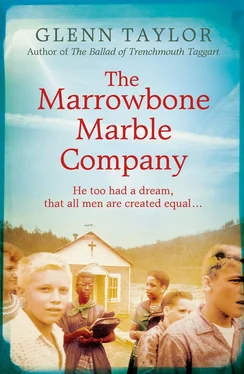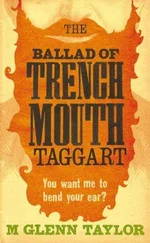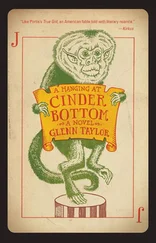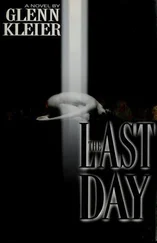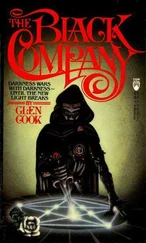By all accounts, Bill Ledford had been a good husband and father, a baseball star and a glassblower from Mingo County who gave what he could to his wife and children and gave the rest to the bartender and the bootlegger.
In August of 1935, Bill Ledford killed his wife and oldest son when he fell asleep drunk at the wheel of his Model A Pickup. Young Loyal had liked a hard wind, and so he rode in the bed. His brother preferred the warm space between his parents in the closed cab. One boy was thrown free and one wasn’t. Loyal was thirteen when it happened. Eli Mann, his father’s old boss, promptly bought the Ledford home from the bank. He told them keep their mouths shut about it, and he told the same to people poking around about the boy who lived there alone. Eli Mann gave Ledford a job, something to get up for every morning.
Ledford picked up the bone he’d been staring at and gnawed it. Rachel had walked away. She bussed her tray and approached Mack Wells, who stood and said, “Miz Ball.”
“No need to get up, I just wanted to check on that hand.”
“It’s just fine. That salve done the trick.”
She told him to change the dressing when he got home, and then she came back over to Ledford.
“You eat like a caveman,” she said.
“You chew with your mouth open.”
She smiled and her eyelids got heavy. Ledford wiped his mouth and loosed a cigarette from its pack. The matchbook was damp with sweat, and it took four swipes to flame.
“I can make us a pot of coffee,” Rachel said. She had a new apartment on Eleventh Avenue. Lucius Ball had wanted her to stay under his roof, but after nursing school and a couple of Mann paychecks, she’d packed her things.
“Watered down or thick?” he asked.
She watched him through the smoke. Everything about Ledford seemed older than he was. “I bought a percolator just yesterday, and I’ll make it any way you like.”
He winked.
Outside, the rain was picking up. It beat a chorus on the roof above them, and the people eating raised their voices to hear one another, and the dishwashers slept standing up.
L EDFORD STOOD INthe entryway of the small apartment. He hung his wet coat and watched as she walked away barefoot on the hardwood. The place smelled of women’s powders and hand cream. Such a scent reminded him of his mother’s room and the small cracked mirror she sat in front of all those years before. Putting her face on, she called it. As a boy, he’d sneak up behind her when she sat in front of her mirror. But she always heard him and scooped him into her lap and tickled him. She claimed that the ticklish among us were guilty of crimes. Over his laughter, she’d ask, “You been stealin sugar, sweetie?” and then she’d hug him to her neck, and all was still and safe.
Rachel brought him a hand towel to pat dry. It was fancy, monogram-stitched, and Ledford hated to use it. She turned from him again and walked past the sofa to the kitchen. “Should I take off my shoes?” he hollered.
“If you want to,” she said.
He did not. He walked to the fireplace mantel and studied the photographs there. They were lined up for the length of it. They told a story. Babies dressed in christening gowns and men with sly grins and bunnyeared fingers behind the heads of their gentle wives.
“Do you like music?” Rachel asked him. She’d started the percolator and was crouching at the cabinet beside him.
“I reckon.”
Her Philco had a phonograph right on top. She pulled a record from the cabinet and set the needle down. “Do you like Claude Thornhill?”
“Never heard of the man,” he said. Piano keys tinkled soft over the quiet hum of clarinets. Ledford’s neck and ears were getting hot.
When the horns came in, he nearly jumped out of his socks. She laughed at him, brought her hand to her mouth to stifle it. He rested his elbow on the mantle, knocking over two framed photographs. When he went to fix them, Rachel grabbed his hands in hers. “Do you want to dance with me?” she asked.
“Yes.”
When she laid her head against his chest, it seemed to Rachel that she’d danced with Ledford a hundred times before.
Ledford was trying not to upchuck his steak and eggs and chocolate cake. He’d not held a woman the likes of this one before.
“Do you know what this song is called?”
He opened his mouth to answer, but only swallowed instead.
“It’s called ‘Snowfall,’ ” Rachel told him. They swayed. He looked at her hand in his, then down the length of her.
Barefoot in her nurse’s uniform, she was the most beautiful thing he’d ever beheld.
November 1941 November 1941 December 1941 August 1942 September 1942 October 1942 November 1942 August 1945 May 1946 June 1946 September 1947 October 1947 November 1947 February 1948 May 1948 July 1948 September 1948 November 1948 April 1949 October 1951 June 1953 II - A House on the Sand June 1963 August 1963 September 1963 December 1964 February 1965 March 1965 April 1965 May 1966 June 1966 February 1967 June 1967 July 1967 September 1967 October 1967 February 1968 March 1968 April 1968 July 1968 December 1968 January 1969 Acknowledgments About the Author Also by Glenn Taylor Author’s Note About the Publisher Конец ознакомительного фрагмента. Текст предоставлен ООО «ЛитРес». Прочитайте эту книгу целиком, купив полную легальную версию на ЛитРес. Безопасно оплатить книгу можно банковской картой Visa, MasterCard, Maestro, со счета мобильного телефона, с платежного терминала, в салоне МТС или Связной, через PayPal, WebMoney, Яндекс.Деньги, QIWI Кошелек, бонусными картами или другим удобным Вам способом.
T HE CLASS WAS CALLED“History of the Revolutionary War,” and its professor was dull as drizzle on a windowpane. Inside the lecture hall, Ledford sat back row left. Try as he might, he could not stay awake. Swing shift will do that to a man.
Those who surrounded him were not of his kind. They were the variety of young people who, when they got smart-lipped in high school, Ledford had punched in the mouth. Young men wore neckties and argyle sweaters. Young women wore their boyfriends’ jackets and spoke in tongues of Alpha and Omicron and Pi. When these students left the lecture hall, it was in groups of eight or more, hip to hip and laughing astride the downed top of a deluxe V-8 convertible. They drank beer.
Ledford walked alone from campus to Mann Glass, and if he drank, it was going to be whiskey.
But he’d long since decided not to go bad to the bottle, and truth be told, he liked his routine. Ledford had learned early to exist without friends, and his work and school schedules, though they’d run an average man down, gave him much-needed purpose. Besides, he liked glass. Especially in its molten form. To watch the stuff glow and channel outward from a 300-ton pot was a sight. He’d once watched his father, a real free-blower, puff up and shape that very material, and he remembered what he’d been told. “Glass ain’t nothing but the earth under your brogans, boy.” As his father had said this, he gripped his blowpipe in one hand and his punty rod in the other. He set them aside and scored a hot green ashtray with his dogleg jackknife. “That there is sand, limestone, and ash,” he’d said.
Back in front of the furnace, Ledford watched the gauge needle blur and wobble. He smacked himself to stay alert. Late nights with Rachel were catching up to him.
There was a sting at the base of his neck. He turned to find Lucius Ball before him in black safety goggles. “You want little babies to starve?” Lucius asked. Spittle flew. Landed on Ledford’s cheek where the heat evaporated it.
Читать дальше
